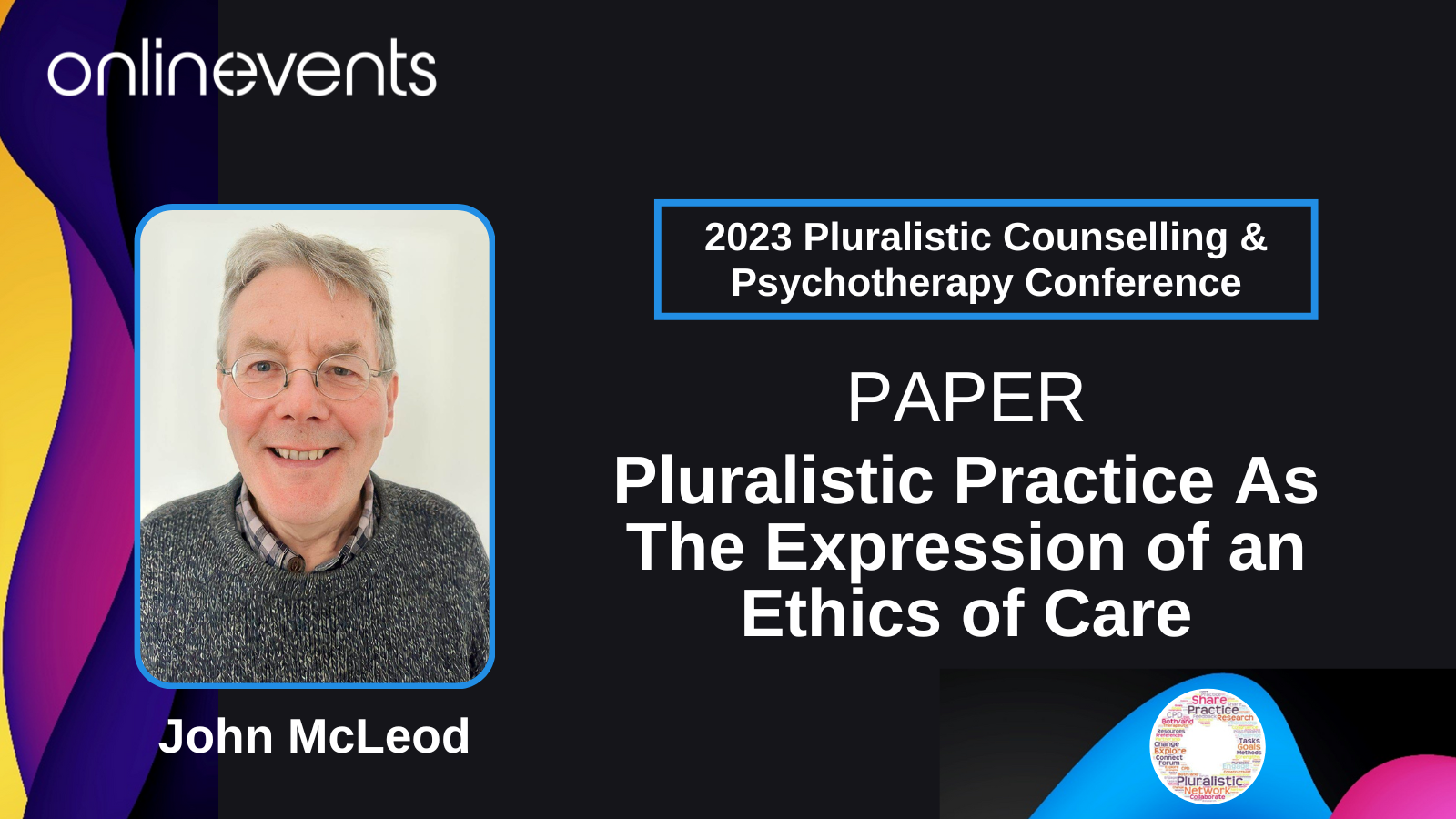An important aspect of pluralistic practice is open-ness to multiple perspectives around issues, and actively exploring the potential relevance of these different viewpoints for the issue that is being tackled. On many occasions, what emerges is that perspectives that were implicit and unvoiced, or had been taken for granted, turn out to be highly useful. The aim of this presentation is to suggest that active attention to the ethics of care may be highly facilitative for some clients. On the whole, counselling and psychotherapy training and practice tends to view ethics mainly in terms of professional or procedural issues such as confidentiality, informed consent, and boundaries. However, there also exists a much wider field of ethical reflection, around how we define and maintain a good life.
The concept and experience of care represents a central aspect of this kind of broader ethical and moral perspective. We only survive to adulthood to adulthood because other people have cared for us, our everyday lives are organised around interconnected networks of mutual care, and at times all of us are vulnerable and need to be cared for. However, despite the fundamental human significance of care, this concept has never played a central role in any theory of therapy.
The first part of this presentation will offer an overview of many ways that the problems that people bring to therapy can be viewed as arising from interpersonal betrayal and other failures of care. The second part of the presentation will look at how pluralistic practice can be viewed as an active form of solidarity and ethics work that extends an ethics of care into parts of a client’s life (or the community in which they live) where it has been eroded or lost.
A key aim of this presentation is to facilitate discussion: a closing section will focus on group dialogue in which participants are invited to share their responses to what they have heard, ask questions, and collectively explore ways that research and training might enable the further articulation of a care-informed approach to pluralistic counselling and psychotherapy.
Course Content
Presenter

John McLeod is Visiting Professor of Counselling at the Institute for Integrative Counselling and Psychotherapy, Dublin, and Emeritus Professor, Abertay University. He has been closely involved in the development of pluralistic therapy, as well as publishing widely on a wide range of aspects of counselling and psychotherapy research and practice. He lives in Dundee, Scotland.


